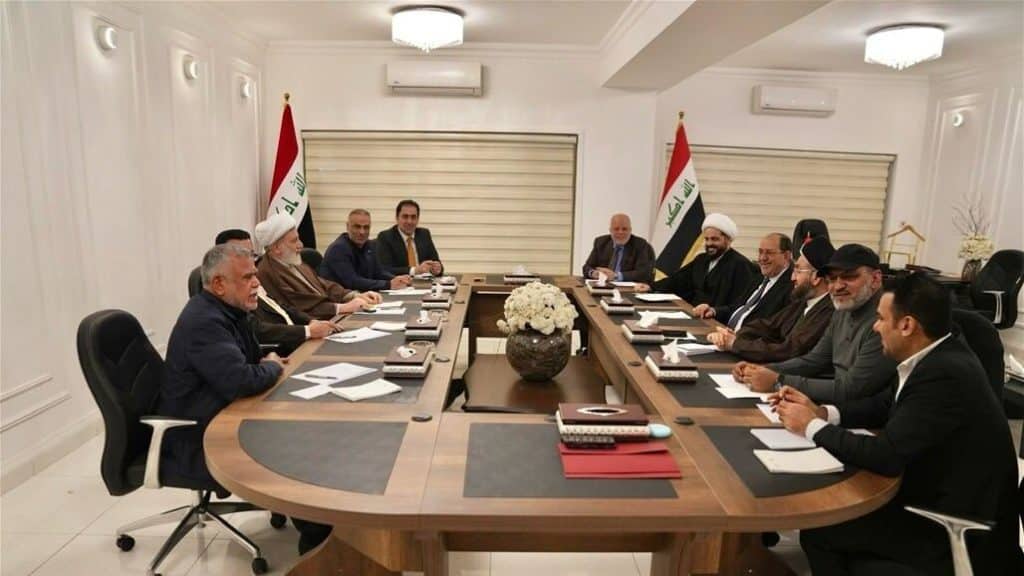The Iraqi Prime Minister’s shortlist includes five candidates.
In its analytical report on the political makeup of Iraq after the results of the parliamentary elections were announced. The status of the parties and movements under the “Shiite Coordination Framework” coalition and their consultations on the post of prime minister, the “Coordination Framework” forces and movements did not wait long after the final results of the Iraqi parliamentary elections were published to declare themselves as the “largest parliamentary faction.”
The media outlet added: This was a step that seemed definitive within the Coordination Framework, despite disagreements among its political leaders regarding the appropriate candidate to assume the post of head of the future government.
While the “Reconstruction and Development Coalition” led by current Prime Minister Mohammed Shia al-Sudani came out on top with 46 seats in the final results of the recent parliamentary elections, it became clear that the process of forming the next Iraqi government will be influenced by complex equations that range from internal calculations to the presence of foreign actors.
A senior source in the Coordination Framework coalition told Al-Akhbar: “The Coordination Framework is a single faction and this decision has been made.” .. But agreeing on the name of the prime minister will take more time.
He added: The new leadership committee formed by the coordination framework will be responsible for interviewing the candidates, reviewing their programs and resumes, and then making a final recommendation.
According to the same source, in contrast to “more than 50 names published in the media, which are fake and unreal names, more than 10 names have been seriously proposed, but the five names that have been most frequently mentioned in meetings are Al-Sudani, Hamid Al-Shatri, Mohsen Al-Mandlawi, Asaad Al-Aidani, and Haider Al-Abadi.”
According to Al-Akhbar, Al-Sudani publicly indicated his desire to serve a second term as prime minister while attending a gathering in the city of Dohuk in the Iraqi Kurdistan Region. At the same time, he defended his desire, saying that this was not a personal desire, but an electoral right.
He added that his coalition “has won the largest number of votes” and “the coordination framework will decide on the formation of the largest faction and begin talks to form a government.”

